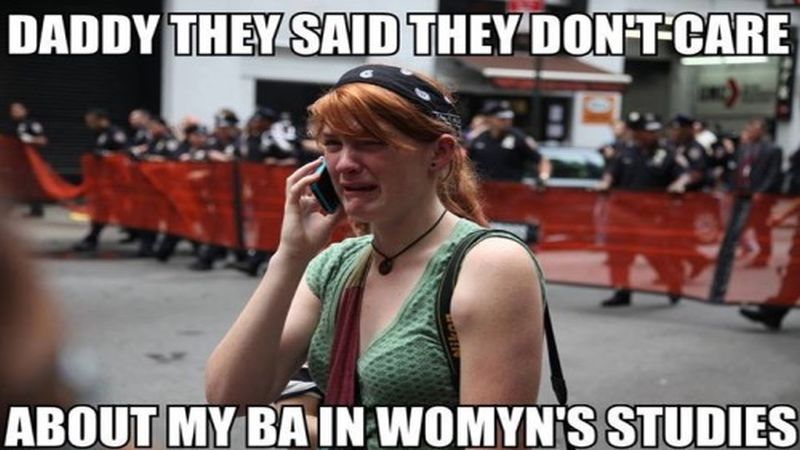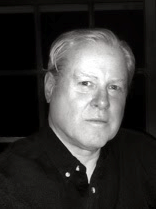We Are Doing College All WrongPerhaps it's time to revise our thinking about the best time to learn.By Ric Wasley May 6, 2019 When is the human mind most open to the joys of learning? When is the human mind most open to the joys of learning? Do you remember your college days? Were they filled with a thirst for knowledge or for a cold brew in a red plastic cup at the next ‘kegger’? I can remember sitting in my philosophy class, while the professor droned on about “free will.” I was thinking about my band, our next gig, and the cute blond in the third row. Not exactly a mind focused on learning. And I don't I think I was alone. With rare exceptions, most kids I knew were either zoned out pondering non-academics or mechanically taking notes with the only objective of being able to regurgitate them with sufficient repetition to pass the next exam - after which they were promptly forgotten. Samuel Ullman wrote, "Youth is not a time of life; it is a state of mind.” If that is true, then are your teens and early 20’s really the best time to explore complex ideas and the nuances of higher learning? What sort of a mind is best qualified to absorb wisdom and delve deeper into the intricacy of postulation? A brain which is still being formed? A mind that lacks the experience to sift through masses of information and the ability to separate the kernels of truth from the mass of sophistry and facile solutions? In other words, are we currently doing higher education all wrong? Let’s examine it. Not only are people living longer and retaining their vitality and mental agility into later life, but the young are getting emotionally younger. When our country was first founded, people were married in their teens, had large families by their 20s, achieved prominence and middle age in their 30s, and were often dead of old age by their 50s. Now we have young people continuing their teens - living at home as dependent children and struggling to 'find themselves,' well into their 30s. Most of them will probably live past 100, leaving decades to explore new ideas to enrich their lives. Thus we should ask ourselves: is forcing an immature child into the unstructured environment of information overload really the best way to prepare them for life - or is it the surest road to confusion? How often did you change your mind as a teenager…about everything? Once a week - once a day - once an hour? I know I did. Why was that? It was not that we were stupid (well, maybe a little). It was really more because we didn’t have enough information or experience to make an intelligent choice - be it about a boyfriend/girlfriend, what classes to take or what career to pursue. Sadly, most of us were simply most influenced by the last voice we heard or whatever passed for the ‘popular opinion’ of the day. Thus, we should really ask - when would one be better prepared to get the most out of higher learning - when immature with no basis for comparison and examination or with the benefit of some years of practical experience? Ah - but what about the necessity of higher education in preparation for a career? That, of course, is the real question. It is also the real solution. In order to successfully prepare to earn a living and support yourself in today’s increasingly specialized workplace, you need to be trained. Every job requires it. From the military to medicine, to mechanics to fast food… They all require training. The problem is that most of that practical and necessary training is done after the student has been loaded up with institutional education, the vast majority of which is of no practical value. McDonald's doesn’t care if you can diagram a sentence nor does Boston General Hospital require their medical staff to know what the capital of ancient Mesopotamia was. So why then do we waste time teaching information which is of no practical use and very little interest to a teenager looking to get out into the world and start a paying career? I would like to propose an updated alternative to the current inefficient and impractical system. Let’s divide higher education into two parts at either end of our intellectual timespan. For our childhood and teenage years, the education process would remain much the same for grades K-12 with perhaps more emphasis on mechanical, trades, and sciences than art, music, and social sciences in high school. Then, instead of what has become the mandatory expectation for so many kids of four years of pointless, time-wasting college, a two-year program like a Junior college - filled with practical hands-on training for the sciences, medicine, computer, engineering, manufacturing, business, education, or military careers. All things that will ensure a good job without the accumulation of tens of thousands of dollars of debt to pay for a degree that is of no practical use to anyone. The more you think about it, the more sense this would make because everyone wins. The employer wins because they would be getting trained employees with less time and money spent on training them for their job. The student would win because instead of being forced to take years of compulsory liberal arts courses at great expense and no practical value, they could graduate in half the time at one-third the cost and be guaranteed of a good paying job in their chosen field upon graduation. Society would benefit as well. Instead of wondering what to do with the legions of angry, bewildered Liberal Arts graduates every year who slowly begin to realize to their horror that four years of gender studies or Inuit folklore is going to condemn them to a lifetime of sleeping on mom's couch to pay off a degree which will get them nothing, the vast number of vacant jobs would be matched up to well-qualified young grads. But what about all those Liberal Arts degrees? Doesn’t society also benefit from poets, authors, artists, and historians? Yes, indeed. And those pursuits are necessary to a civilized society. But aren’t they more meaningful and better appreciated after a lifetime of living and experience rather than at a point when you have nothing to compare them to? Ask yourself this question? Was I more qualified and interested in liberal arts at 18 than I am now? When was I better able to concentrate, ask questions, and form intelligent and reasonable conclusions - then or now? Therefore, doesn’t it make more sense to split up education into two segments of your life? During the young years, you learn the basics and then train for a career. Then, after you’ve worked a job, raised your family, and learned a thing or two about the world, go back to college and explore all those interests that you’ve developed in some years of living and experience. Think of the intelligent questions you’d have for the professor if you weren’t daydreaming about the ‘kegger' or the blond in the third row. Think of the ideas you could explore, poems you could write, pictures you could paint, the philosophy you could pursue with your acquired time and knowledge. There is also another real benefit which would help to address a very new but very real problem in today's educational community. The fact that increasingly radical, leftist professors have co-opted the Liberal Arts and turned them into brainwashing camps more reminiscent of Stalin's gulags, Mao’s re-education camps, and the Hitler Youth indoctrination centers, than the questioning forums of the Greek philosophers. They are only able to get away with this propagandizing through the bullying of their immature students and collusion with administrators who charge these kids and parents thousands of dollars in mandatory brainwashing thinly disguised as ‘learning.’ By doing away with all liberal arts degrees for the young and saving them for mature, more experienced adults we would eliminate this substantially. Can you imagine some ranting, leftist, bubble-headed professor trying to brainwash a class filled with experienced adults and successful small business owners and entrepreneurs on the merits of Marxism? I rest my case. The current system is failing all parts of our culture - the students, employers, and society in general. Therefore, when something isn’t working shouldn’t we be looking for new solutions? Perhaps it’s time to give this one a try.
| ||||
 Ric Wasley is a writer and lecturer, as well as the author of the popular McCarthy Mystery Series. Ric has had a 40 year professional career history in advertising, publishing and marketing in Boston, New York and San Francisco. He has degrees in history and psychology and has been trained in debating, public speaking and stage acting. A large part of his 40 year career was spent in numerous professional and business settings as a presenter and featured speaker at seminars and professional meetings. Ric has been a visiting professor at Worcester Polytech Institute. He also teaches a popular course on marketing for authors at prominent venues such as the venerable “Cape Cod Writers Conference.” Wasley has been involved in both print and broadcast media as well as writing for business and commercial markets for over 30 years and continues to consult for a major media company. In addition to his novels and short stories, he has been published in several literary magazines. Wasley currently divides his time between Boston and his home on Cape Cod where he continues to write, lecture and create worlds where the unexpected thrives.
|
